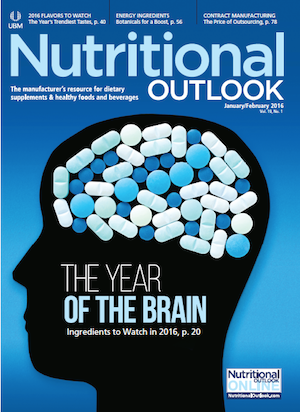Which Flavors Are Trending in Energy Drinks?
Today’s energy drink makers are inspired not only by botanical ingredients but also botanical flavors.
Photo © iStockphoto.com/lutavia

Fruity and citrus flavors are most popular among leading energy drink brands. Anton Angelich, group vice president, marketing, for flavor house Virginia Dare (Brooklyn, NY), says, “The characteristic and iconic tutti-frutti–type flavor of Red Bull leads the category’s flavors." Still, today’s energy drink makers are also inspired by other botanical flavors, says Tina Rzeha, marketing associate, beverage flavors, North America, Sensient Flavors (Hoffman Estates, IL).
“Some of the up-and-coming flavors in the energy drink market are botanicals. With their natural image,” she says, these flavors “cater to consumers’ desire for more natural energy drinks.”
Innova Market Insights also tracks energy drink flavor trends. Here’s what the market researcher is seeing. Orange is currently the most popular flavor for energy drinks, followed pretty evenly behind by strawberry, other “unspecified” berry flavors, lemonade, blueberry, pomegranate, citrus, raspberry, lime, and green tea. Red Bull has also been focusing on tropical flavors, Angelich points out.
Botanical flavors offer some appealing advantages, Rzeha says, including less sweetness, less artificial-tasting flavor, and more unique combinations that still have “everyday appeal.” Interesting botanical flavor profiles will also appeal to those consumers looking beyond "gas station-type" energy drinks to “more of a grown-up appeal,” she adds. “Botanicals are a great way to attract this kind of consumer.”
Of note, Rzeha says she sees “category blurring” in sports and energy drinks. Part of this blurring is happening because consumers are interested in many types of beverages now: fusion-style teas, functional waters, and dairy products with added energy and protein ingredients, for instance. Low-calorie “energy waters,” like those infused with vitamins, minerals, and energy extracts like guarana and coffee bean, are trending among older millennials for their “wholesome appeal,” she says, and dairy-based energy drinks appeal to younger shoppers. Given these diverse tastes, marketers are interested in trying out “mash-up beverages,” as she calls them, to capture new consumers, a trend that could affect the entire category, including drink flavors.
Also read:
2016 Flavor Trends for Food and Beverage
Energy Drink Makers Turn to Natural Botanical Ingredients

Prinova acquires Aplinova to further increase its footprint in Latin America
April 7th 2025Prinova has recently announced the acquisition of Brazilian ingredients distributor Aplinova, which is a provider of specialty ingredients for a range of market segments that include food, beverage, supplements, and personal care.

























